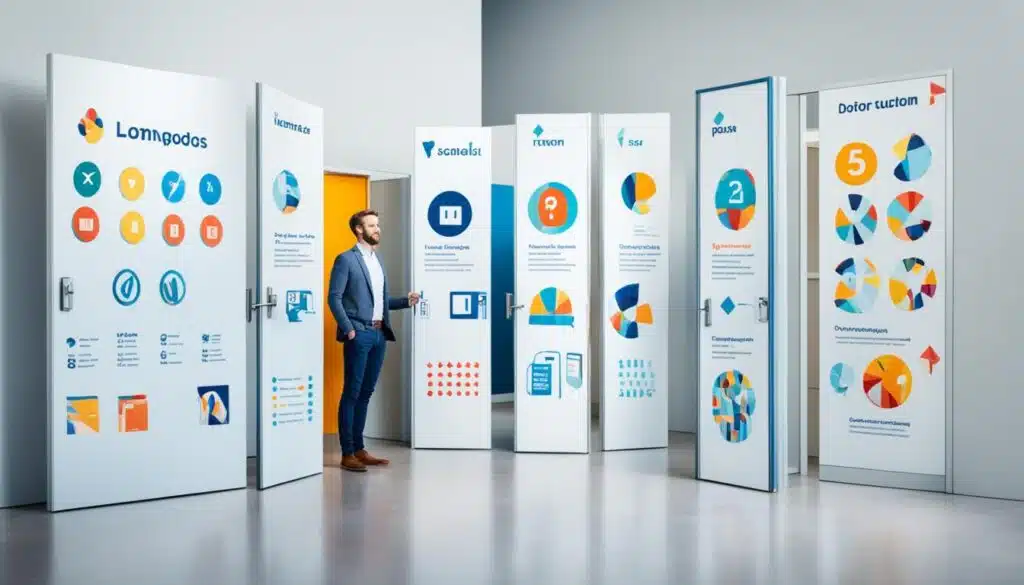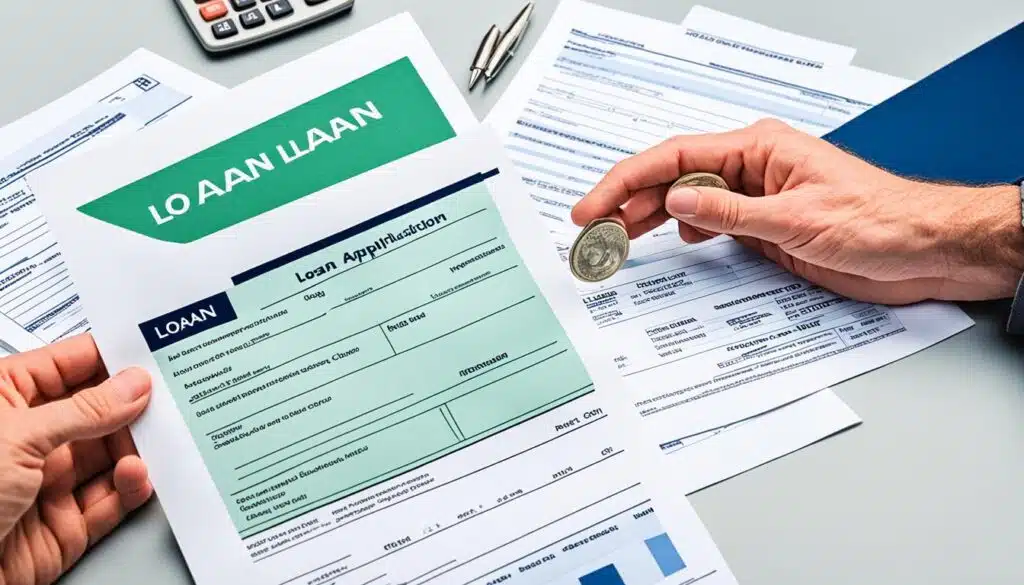Loan Options For Self Employed Securing a loan as a self-employed individual can be a daunting task, but with the right information and guidance, it’s definitely achievable. Whether you’re looking for financing to grow your business, consolidate debt, or make a major purchase, understanding your loan options is crucial. In this article, we will explore personal loans and other alternative funding sources that are specifically designed for self-employed borrowers.
When it comes to personal loans, self-employed borrowers have several advantages. Personal loans offer flexibility in terms of loan amounts and repayment periods, allowing you to tailor the loan to your specific needs. Additionally, personal loans can be used for a variety of purposes, providing you with the freedom to allocate the funds where they are needed most.
However, as a self-employed borrower, it’s important to be prepared for the loan application process. Lenders typically require proof of income and a good credit score to assess your eligibility. Providing recent tax returns, bank statements, and any other relevant financial documents will help demonstrate your ability to repay the loan.
While personal loans are a popular choice, they may not be suitable for everyone. In some cases, self-employed individuals may have difficulty qualifying for an unsecured loan. This is where secured loans can be a viable alternative. Secured loans require collateral, such as a valuable asset or home equity, which acts as a guarantee for the lender. Although secured loans may come with a higher risk, they offer a higher chance of approval and potentially lower interest rates.
Alternative funding options are also available for self-employed borrowers. Business loans, crowdfunding, and peer-to-peer lending platforms provide alternative avenues for financing. These options may have specific requirements and conditions, so it’s important to thoroughly research and compare the available options before making a decision.
Key Takeaways: Loan Options For Self Employed
- Personal loans are a flexible financing option for self-employed borrowers, offering tailor-made loan amounts and repayment terms.
- Secured loans can be a viable alternative for self-employed individuals who may struggle to qualify for an unsecured loan, but they come with the risk of losing collateral.
- Alternative funding options like business loans, crowdfunding, and peer-to-peer lending platforms provide additional avenues for self-employed borrowers.
- Preparing the necessary documentation, such as proof of income and relevant financial statements, is essential when applying for a loan as a self-employed individual.
- Researching and comparing loan offers from multiple lenders can help you find the best terms and conditions that suit your financial situation and goals.
Understanding Personal Loans for Self-Employed Borrowers
When it comes to securing financing as a self-employed individual, personal loans can be a valuable option. These installment loans provide the flexibility to borrow a specific amount of money and repay it over a set period of time, making them suitable for a variety of purposes. Whether you need funds for home renovations, debt consolidation, medical bills, or major purchases, a personal loan can help you meet your financial goals.
In order to qualify for a personal loan, self-employed borrowers typically need to provide proof of income. Lenders want to ensure that you have a reliable source of income and the ability to repay the loan. This proof of income can come in various forms, such as tax returns, bank statements, or profit and loss statements for your business. By demonstrating your financial stability, you increase your chances of securing a personal loan.
Another crucial factor lenders consider when approving personal loans is your credit score. A good credit score indicates your financial responsibility and demonstrates your ability to manage debt. While each lender has its own credit score requirements, maintaining a good credit score can significantly enhance your chances of loan approval and may even result in more favorable interest rates.
It is worth noting that lenders may take other factors into account when evaluating your loan application. One such factor is your debt-to-income ratio, which compares your monthly debt obligations to your income. A lower debt-to-income ratio indicates better financial health and a higher likelihood of loan approval.
Overall, personal loans provide a reliable financing option for self-employed borrowers. They offer the freedom to use the funds for various purposes and can be obtained by providing proof of income and maintaining a good credit score. By carefully considering your financial situation and exploring different lenders, you can find a personal loan that meets your needs and supports your self-employment journey.
Secured Personal Loans for Self-Employed Borrowers
If you’re having trouble qualifying for an unsecured personal loan, you may consider a secured personal loan. These loans require collateral, such as a home equity or other valuable asset. While secured loans may be easier to qualify for, they come with the risk of losing your collateral if you fail to repay the loan. It’s important to carefully consider your options and choose a loan that aligns with your financial situation and goals.
A secured personal loan provides a solution for self-employed individuals who may not meet the strict criteria for unsecured loans. By offering collateral, such as a property or asset of value, borrowers can increase their chances of approval and secure better terms and interest rates. The collateral serves as a guarantee to the lender that the loan will be repaid.
When considering a secured personal loan, it’s important to assess your ability to repay the loan and ensure that the collateral you provide is of sufficient value. Failure to repay the loan could result in the loss of your collateral, so it’s crucial to have a repayment plan in place and adhere to it.
“A secured personal loan is an excellent option for self-employed individuals who may have difficulty qualifying for an unsecured loan. By offering collateral, borrowers can secure the financing they need while minimizing the risk for lenders.”
One of the advantages of a secured personal loan is that the interest rates are often lower compared to unsecured loans. Lenders view secured loans as less risky since they have a form of collateral to fall back on if the borrower defaults. This lower interest rate can translate into significant savings over the life of the loan.
It’s important to note that the value of the collateral you provide will determine the maximum loan amount you can borrow. Lenders typically offer secured personal loans with loan amounts that are a percentage of the collateral’s appraised value. Additionally, the loan term and repayment schedule will also be influenced by the collateral’s value.
When considering a secured personal loan, weigh the benefits of lower interest rates and increased chances of approval against the risk of losing your collateral. Assess your financial situation and determine if you have assets of sufficient value to serve as collateral. If you do, a secured personal loan can be an excellent option for self-employed individuals looking to secure financing.
If you’re unsure about which type of loan is best for you, consider consulting with a financial advisor or loan specialist who can review your unique circumstances and help you make an informed decision.
Comparison of Secured and Unsecured Personal Loans
| Aspect | Secured Personal Loans | Unsecured Personal Loans |
|---|---|---|
| Collateral | Requires collateral, such as a home equity or valuable asset | No collateral required |
| Approval | Easier to qualify for | Tighter eligibility requirements |
| Interest Rates | Lower interest rates | Higher interest rates |
| Loan Amount | Can be higher based on the appraised value of collateral | May have lower maximum loan amount |
| Risk | Risk of losing collateral if loan is not repaid | No risk of losing collateral |
Loan Amounts and Interest Rates for Self-Employed Borrowers
When it comes to personal loans for self-employed borrowers, the loan amounts offered typically range from $1,000 to $50,000. Some lenders may even offer higher amounts depending on your specific circumstances. These loan amounts provide flexibility and can be tailored to meet your individual financial needs. Whether you require a small loan for a minor expense or a larger loan to fund a significant purchase or project, personal loans can provide the necessary funds.
The interest rates on personal loans for self-employed borrowers can vary depending on several factors. One critical factor that influences the interest rate is your credit score. Lenders evaluate your creditworthiness based on your credit score, which is a reflection of your credit history and financial habits. Borrowers with good or excellent credit scores, typically considered to be 670 or higher on the FICO scoring model, are more likely to qualify for lower interest rates.
However, it’s important to note that interest rates are not solely dependent on credit scores. Lenders also consider other aspects such as the lender’s terms and your overall financial profile. Factors such as the amount of income you generate, your debt-to-income ratio, and the length of time you’ve been self-employed can all influence the interest rate offered to you.
It’s advisable to shop around and compare loan offers from multiple lenders to ensure you secure the most favorable interest rate. By exploring different options and taking the time to find a lender that suits your needs, you can optimize your borrowing experience and secure a loan with a competitive interest rate.
When considering personal loans as a self-employed borrower, carefully evaluate the loan amounts and interest rates available to you. Taking the time to research and compare loan options can help you secure the financing you need while ensuring favorable terms that align with your financial goals.
Applying for a Personal Loan as a Self-Employed Individual
When it comes to applying for a personal loan as a self-employed individual, gathering the necessary documentation is crucial. Lenders need proof of your income and financial stability to assess your loan application (loan application). Here are some key documents you may need to provide:
- Recent Tax Returns: Include your personal tax returns for the past two to three years. These documents can help verify your income and demonstrate your ability to repay the loan (proof of income).
- Bank Statements: Provide several months’ worth of bank statements to showcase your financial activity and cash flow. Lenders often review these statements to ensure you have sufficient funds to cover the loan payments (bank statements).
- Proof of Business Expenses: If you have any significant business expenses, be prepared to provide documentation to support them. This could include receipts, invoices, or other records that validate your claims.
Creating a professional portfolio that presents your business and showcases its success can further improve your chances of securing a loan. Include key business metrics, client testimonials, and any other relevant information that demonstrates your financial stability (proof of income).
Remember, the more organized and thorough your documentation is, the smoother the loan application process will be. Take the time to gather all the necessary paperwork and present yourself as a reliable borrower.
Additionally, be prepared to explain any fluctuations in your income or any unusual financial circumstances. This can help lenders better understand your financial situation and make a more informed decision about your loan application.
Next Steps: Submitting Your Loan Application
Once you have gathered all the required documentation, you can proceed with submitting your loan application. Most lenders provide an online application process that allows you to upload your documents conveniently. Ensure that all the information you provide is accurate and up-to-date, as any inconsistencies can delay the approval process.
After submitting your application, be prepared to respond to any follow-up questions or requests for additional information that the lender may have. Promptly addressing these inquiries can help expedite the approval process.
| Loan Application Checklist | Proof of Income | Bank Statements |
|---|---|---|
| Recent Tax Returns | Personal tax returns for the past 2-3 years | Several months’ worth of bank statements |
| Proof of Business Expenses | – | – |
By providing the necessary documentation and accurately completing your loan application, you increase your chances of obtaining a personal loan as a self-employed individual. Remember to carefully review the terms and conditions of the loan before accepting the offer and ensure that the loan aligns with your financial goals and needs.
Alternative Funding Options for Self-Employed Borrowers
If you’re having difficulty qualifying for a personal loan or want to explore other funding options, there are alternative solutions available. Business loans, crowdfunding, and grants can be potential avenues for self-employed individuals to secure financing for their projects or business ventures. It’s important to research and evaluate the options that best suit your needs and goals.
Business Loans
Business loans are a viable option for self-employed individuals seeking funding. These loans are specifically designed to support business-related expenses, such as equipment purchases, inventory restocking, or business expansion. With business loans, you can access a larger sum of money than with personal loans, making it an ideal choice for ambitious entrepreneurs.
Crowdfunding
Crowdfunding has gained immense popularity in recent years as a way for individuals to raise funds for their projects or business ventures. Through crowdfunding platforms, you can present your idea or business concept to a wide audience and collect small contributions from individuals who believe in your vision. It’s an innovative and collaborative way to secure financing while also gaining exposure and building a community around your project.
“Crowdfunding allows self-employed individuals to tap into the power of the crowd, reaching a vast pool of potential supporters and investors.” – John Smith, CEO of Successful Crowdfunded Startup
Grants
Grants are another alternative funding option for self-employed borrowers. These are essentially free funds provided by government entities, nonprofits, or foundations to support specific projects or initiatives. While grants can be highly competitive and come with specific requirements, they offer a unique opportunity to access non-repayable funds that can fuel your business growth or creative endeavors.
By exploring these alternative funding options, self-employed borrowers can find the financial support they need to bring their projects to life or expand their businesses. Whether it’s through business loans, crowdfunding, or grants, each option has its own advantages and considerations. It’s important to carefully evaluate your goals, financial situation, and eligibility criteria to determine the best path forward.
Financing Options for Self-Employed Home Buyers
Self-employed individuals who are looking to purchase a home may face additional requirements and paperwork when applying for a mortgage. Lenders carefully scrutinize the finances and viability of your business, taking into account factors such as how your business operates, personal income versus business income, income stability, and length of self-employment.
When applying for a mortgage as a self-employed individual, it’s crucial to be well-prepared with the necessary documentation to demonstrate your financial stability and ability to repay the mortgage. Lenders typically require documents such as tax returns, both personal and business, profit and loss statements, and bank statements.
Table: Required Documentation for Self-Employed Mortgage Applicants
| Documentation | Description |
|---|---|
| Tax Returns | Both personal and business tax returns for the past two years. |
| Profit and Loss Statements | Documents that provide an overview of your business’s income and expenses. |
| Bank Statements | Recent bank statements to demonstrate your financial stability. |
By providing these documents, you can show lenders your financial capabilities and increase your chances of being approved for a mortgage. It’s important to consult with a mortgage specialist or loan officer who has experience working with self-employed borrowers. They can guide you through the mortgage application process and help you understand the specific requirements for self-employed individuals.
Remember that each lender may have different criteria and requirements. It’s crucial to compare mortgage options from multiple lenders to find the best self-employed mortgage options that suit your needs and financial situation. Working with a reputable lender who understands the unique challenges faced by self-employed individuals can greatly simplify the mortgage process.
Expert Tip: Seeking Professional Assistance
Consulting with a mortgage specialist or loan officer who specializes in working with self-employed borrowers can make a significant difference in navigating the mortgage process. They have expertise in understanding the documentation requirements and can guide you through the application process, ensuring a higher chance of approval.
When applying for a mortgage as a self-employed home buyer, being prepared and well-informed is key. Understand the specific documentation requirements, gather the necessary paperwork, and seek expert guidance to enhance your chances of securing a mortgage that meets your needs.
Nontraditional Financing Options for Self-Employed Borrowers
If you’re having difficulty qualifying for a traditional mortgage as a self-employed individual, it’s important to consider nontraditional financing options. Two potential solutions are non-QM (non-qualified mortgage) loans and asset-based loans. While these options may have different requirements and terms compared to traditional mortgages, they can provide the funding you need for home purchases or refinancing.
Non-QM Loans
A non-QM loan is a type of mortgage that does not meet the qualified mortgage standards set by government entities like Fannie Mae or Freddie Mac. These loans focus on the borrower’s ability to repay the loan rather than strict income documentation requirements. As a self-employed borrower, this can be advantageous as it allows for more flexibility in providing income verification. Non-QM loans consider alternative forms of income such as bank statements, assets, and investment income. Keep in mind that non-QM loans may require a larger down payment and could have higher interest rates.
Asset-Based Loans
Asset-based loans are another alternative for self-employed borrowers who may not meet traditional mortgage qualifications. These loans are secured by the borrower’s assets, such as real estate properties, investment portfolios, or business equipment. The loan amount is based on the appraised value of the assets, rather than solely relying on income documentation. Asset-based loans can be a viable option if you have substantial assets but limited verifiable income. Keep in mind that failure to repay the loan as agreed may result in the loss of the pledged assets.
When considering non-QM loans or asset-based loans, it’s important to thoroughly research and compare different lenders and loan terms. Take into account factors such as interest rates, loan fees, repayment terms, and any potential risks associated with the loans. Evaluating multiple options will allow you to make an informed decision that aligns with your financial goals and specific situation.
It’s worth noting that nontraditional financing options may not be suitable for everyone. Each borrower’s financial situation is unique, and what works for one individual may not work for another. Consulting with a mortgage professional or financial advisor can provide valuable guidance and help you determine the most appropriate financing solution for your self-employment needs.
| Loan Type | Key Features | Benefits | Considerations |
|---|---|---|---|
| Non-QM Loans | More flexible income verification May require a larger down payment Higher interest rates |
Allows for alternative forms of income verification Can accommodate self-employed borrowers with inconsistent income sources |
Higher interest rates and fees compared to traditional mortgages May require a larger down payment Eligibility criteria may vary by lender |
| Asset-Based Loans | Secured by borrower’s assets Loan amount based on appraised value of assets Less emphasis on income verification |
Access to financing based on asset value rather than income documentation Can be a viable option for self-employed borrowers with substantial assets |
Potential risk of losing assets if loan is not repaid as agreed Higher interest rates and fees compared to traditional mortgages Eligibility criteria may vary by lender |
Partner, Investor, and Peer-to-Peer Financing for Self-Employed Individuals
Partner financing, angel investors, and peer-to-peer lending offer alternative financing options that can greatly benefit self-employed individuals in their business ventures. These options provide access to funding and resources that can support growth and expansion. Let’s explore each of these financing avenues:
Partner Financing
Partner financing involves forming strategic partnerships with other businesses or investors who provide funding in exchange for specific benefits or rights. This type of financing can be especially advantageous for self-employed individuals who are seeking not only financial support but also expertise, industry connections, and shared resources.
Partner financing can come in various forms, such as joint ventures or equity partnerships. Joint ventures allow businesses to pool their resources and share profits and losses, whereas equity partnerships involve investors exchanging capital for a share of ownership in the business. These partnerships can provide the necessary capital for self-employed individuals to pursue new opportunities, expand their operations, or launch innovative projects.
Angel Investors
Angel investors are individuals who invest their personal funds into startups or early-stage businesses. These investors not only provide financial support but also offer valuable guidance and mentorship to help entrepreneurs navigate the challenges of growing their businesses. Angel investors are typically experienced entrepreneurs or industry professionals who have a keen interest in supporting and nurturing promising ventures.
For self-employed individuals, angel investors can be a valuable source of financing. These investors often have a deep understanding of the challenges faced by self-employed entrepreneurs and are more willing to take risks on innovative ideas and concepts. Partnering with an angel investor can not only provide the necessary capital but also open doors to valuable networks, industry expertise, and strategic partnerships.
Peer-to-Peer Lending
Peer-to-peer lending has emerged as a popular alternative financing option, connecting borrowers directly with individual lenders through online platforms. This form of lending cuts out the traditional financial institutions, allowing self-employed individuals to access funding from multiple investors.
Peer-to-peer lending platforms operate by matching the borrowing needs of self-employed individuals with lenders who are willing to provide the necessary funds. These platforms offer an efficient and transparent process, often with competitive interest rates and flexible repayment terms. Peer-to-peer lending can be advantageous for self-employed individuals who may not meet traditional lending criteria or who are seeking faster access to funds without the lengthy approval process of traditional banks.
Overall, partner financing, angel investors, and peer-to-peer lending present attractive financing alternatives for self-employed individuals. These options can provide not only the necessary funds but also valuable expertise, mentorship, and networking opportunities. By exploring and leveraging these financing channels, self-employed individuals can secure the resources needed to fuel the growth and success of their businesses.
Finding a personal loan if you’re self-employed can be challenging, but loans are available for self-employed workers through various personal loan lenders. Whether you’re looking for larger loan amounts for personal projects or smaller loans for home renovations, personal loans for the self-employed can provide the financing you need. Researching loan options available, such as unsecured personal loans or home equity loans, is crucial to finding a personal loan with a good repayment structure. Unlike traditionally employed individuals, self-employed loan applicants may need to provide additional documentation to prove income and repay a loan. Avant personal loans and SBA microloans are examples of loan providers that offer options tailored to self-employed borrowers. Understanding the personal loan application process and the different loan types, including unsecured loans and short-term loans, can help self-employed individuals get approved for a loan that suits their needs.
Also Read: How To Get A Startup Business Loan With No Money?
Conclusion
Securing a loan as a self-employed individual can be a challenge, but with the right research and understanding of the available options, it is possible to find the financing that meets your needs. Personal loans, secured loans, and alternative funding options offer flexibility and support for self-employed borrowers. By carefully evaluating your financial situation and considering the various loan options, you can secure the funding necessary to achieve your personal and business goals.
FAQs
Q: What are some loan options available for self-employed individuals?
A: Self-employed individuals have various loan options such as personal loans, home equity loans, lines of credit, and online loans tailored for self-employed borrowers.
Q: How can self-employed workers qualify for a loan?
A: Self-employed workers can qualify for a loan by providing proof of income through tax returns, bank statements, or profit and loss statements to demonstrate their ability to repay the loan.
Q: What are some alternatives to traditional loans for self-employed individuals?
A: Self-employed workers can explore loan alternatives such as business credit cards, cash advances, or seeking loans from online lenders who cater to self-employed borrowers.
Q: How important is it for self-employed individuals to make repayments on time?
A: Making repayments on time is crucial for self-employed individuals to maintain a good credit score and build trust with lenders, which can improve their chances of getting approved for future loans.
Q: Can self-employed individuals get personal loans for business purposes?
A: Yes, self-employed individuals can use personal loans for a variety of purposes, including funding their business ventures, covering business expenses, or investing in business growth.
Q: What should self-employed individuals consider to get a better interest rate on a loan?
A: Self-employed individuals can improve their chances of getting a better interest rate by maintaining a good credit score, providing proof of stable income, and comparing loan offers from different lenders.
Q: Are there specific lenders who specialize in providing loans to self-employed workers?
A: Yes, there are lenders who specialize in offering loans to self-employed individuals, understanding their unique financial situations and offering tailored loan products to meet their needs.
Q: How can self-employed individuals find the right loan that suits their financial requirements?
A: Self-employed individuals can research different loan options, compare interest rates and terms, and consult with loan experts to find the most suitable loan that aligns with their financial goals and capabilities.











